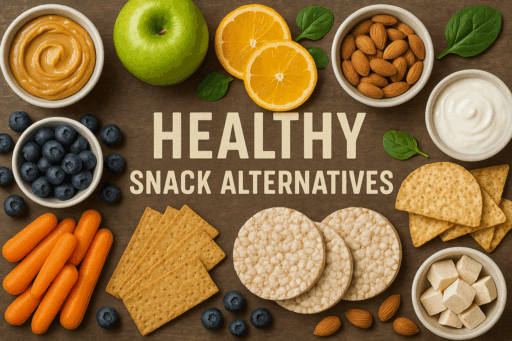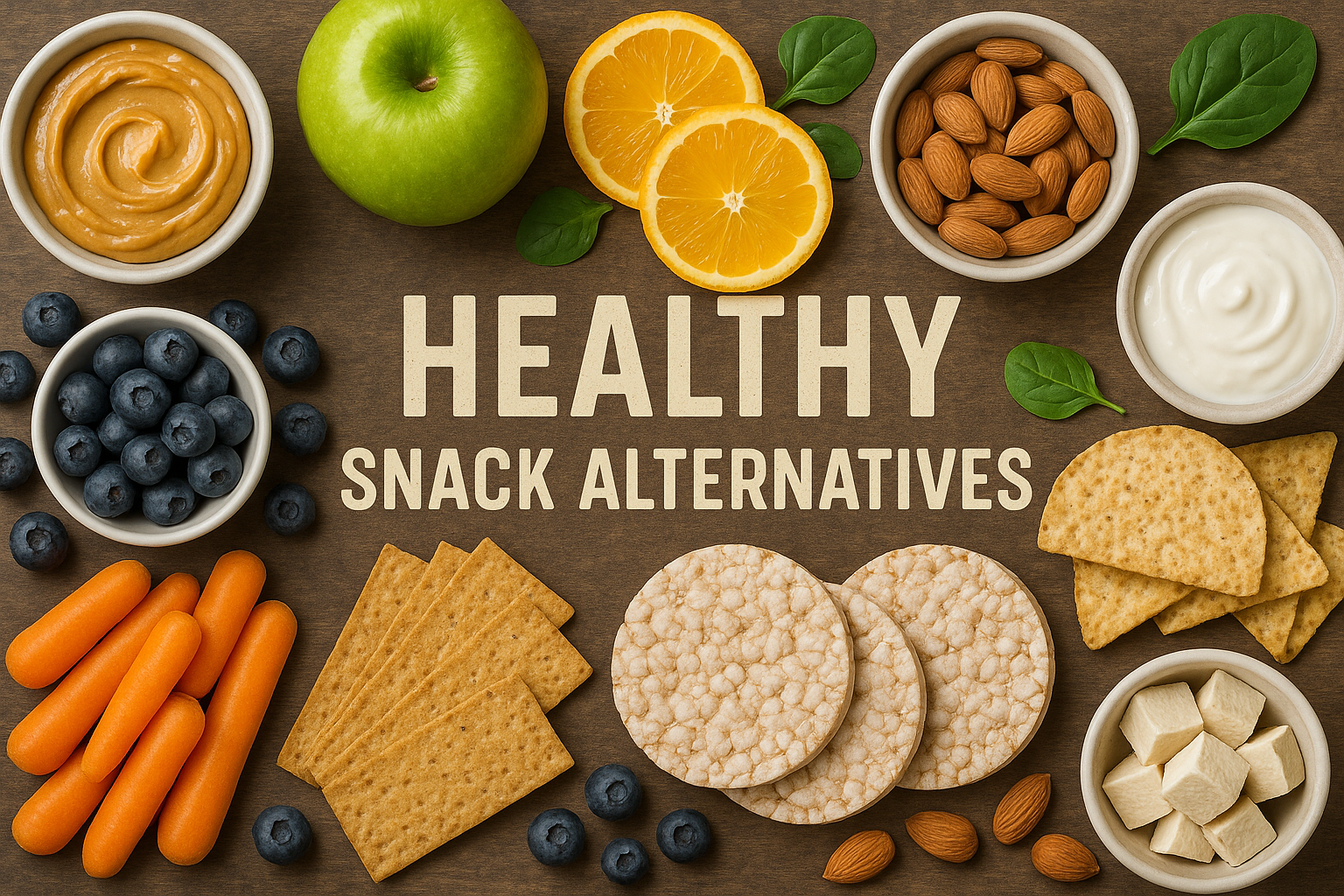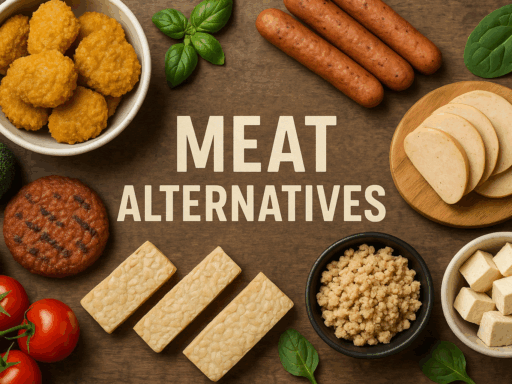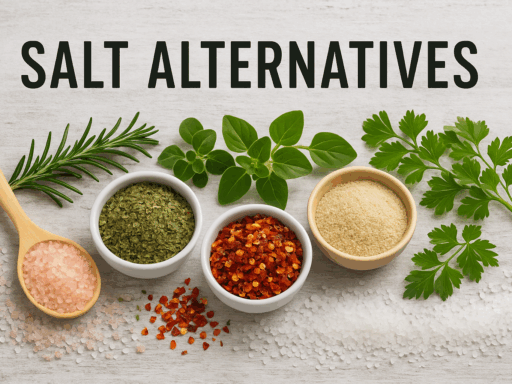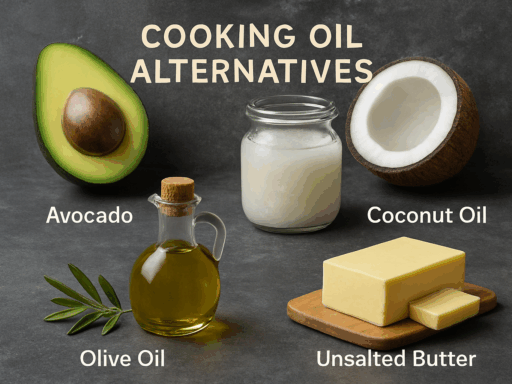In today’s health-conscious world, snacking has become an essential part of our daily routines. However, many traditional snack foods—chips, cookies, and sugary treats—are often high in refined sugars, unhealthy fats, and artificial additives. As the awareness of healthier eating habits grows, many consumers are seeking healthy snack alternatives that offer both taste and nutrition. Whether for weight management, energy boosts, or better overall health, healthy snack alternatives provide a way to satisfy hunger and cravings without compromising on health.
This article will explore the top healthy snack alternatives, their sustainability, applications, innovative features, and the challenges consumers face when transitioning from traditional snacks to healthier options. We will also take a look at some of the leading producers and suppliers in the healthy snack industry, providing insights for consumers who want to make smarter, sustainable snack choices.
The Rise of Healthy Snack Alternatives: Why It Matters
Traditional snacks—often laden with unhealthy fats, refined sugars, and artificial ingredients—are frequently a source of “empty calories” that provide little nutritional value. These snacks, though quick and satisfying, are known to contribute to obesity, heart disease, diabetes, and other health issues.
Healthy snack alternatives are designed to not only taste great but also deliver essential nutrients like protein, fiber, vitamins, and healthy fats, offering consumers a better way to snack. By choosing alternatives that focus on whole, plant-based ingredients and minimal processing, consumers can improve their overall diet while avoiding the negative health effects associated with processed, sugary snacks.
Moreover, there’s a growing trend of consumers prioritizing products that align with their values, such as those that are ethically sourced, locally produced, and environmentally sustainable. The healthy snack alternatives market is responding to these demands by offering options that support better health and reduce the environmental impact of food production.
The Top Healthy Snack Alternatives

1. Nuts and Seeds
Nuts and seeds are among the most popular healthy snack alternatives because of their rich nutritional profile. These snacks are packed with healthy fats, protein, fiber, and essential vitamins, making them a satisfying and energizing choice.
- Examples: Almonds, walnuts, sunflower seeds, chia seeds, and pumpkin seeds.
- Applications: Nuts and seeds can be eaten on their own or added to smoothies, yogurt, oatmeal, salads, and baked goods.
- Benefits: They are rich in heart-healthy monounsaturated fats, fiber, protein, and antioxidants. For example, almonds are known to improve heart health, lower bad cholesterol, and provide a sustained energy boost.
Sustainability:
- Nuts, especially almonds, are known to have a relatively low carbon footprint compared to animal-based snacks. However, the water usage involved in growing almonds, particularly in drought-prone areas like California, has raised concerns about their environmental impact. This is why sourcing from sustainable farms that prioritize water conservation is crucial for reducing environmental harm.
Challenges:
- Caloric Density: While nuts and seeds are nutritionally dense, they are also high in calories. For consumers looking to manage weight, portion control is important.
- Allergies: Nuts are common allergens, making them unsuitable for people with nut allergies.
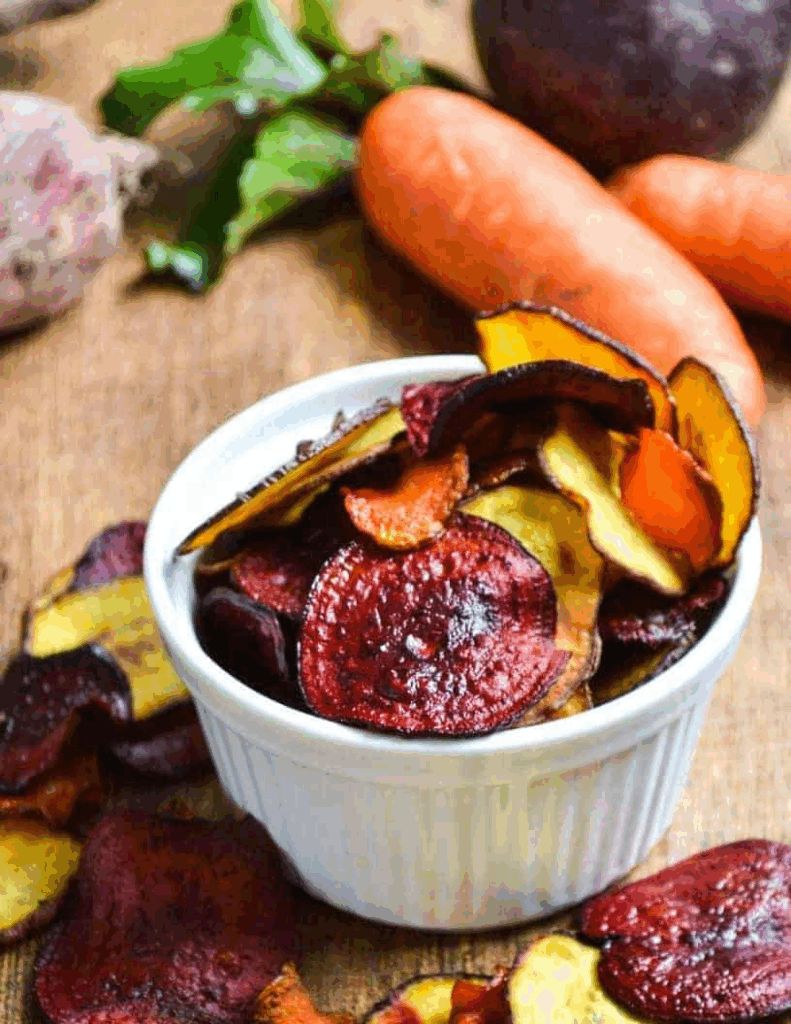
2. Veggie Chips and Crisps
For those who crave a crunchy, salty snack, veggie chips offer a healthier alternative to traditional potato chips. Made from a variety of vegetables such as sweet potatoes, kale, zucchini, or beets, these snacks are rich in vitamins and fiber.
- Examples: Terra Chips, Bare Snacks, and Cape Cod Veggie Chips.
- Applications: Veggie chips can be eaten on their own as a quick snack, paired with dips like hummus or guacamole, or sprinkled over salads.
- Benefits: Veggie chips typically contain fewer calories and less fat than regular chips. They also provide added fiber and antioxidants from vegetables like sweet potatoes, which are rich in vitamin A and potassium.
Sustainability:
- Veggie chips are generally more sustainable than traditional potato chips because they require fewer resources to grow. Root vegetables, such as sweet potatoes, have lower water consumption compared to other crops and are more resilient to climate change.
Challenges:
- Processing: Many commercially available veggie chips are processed and can contain added sugars, preservatives, or unhealthy oils, which can detract from their health benefits.
- Taste Profile: While veggie chips offer a healthy crunch, their flavor may not appeal to everyone, especially if they are used to the stronger, more familiar taste of regular potato chips.

3. Fruit-Based Snacks
Fruit-based snacks, like dried fruit, fruit chips, and fruit bars, offer a naturally sweet and nutritious alternative to sugary treats. These snacks are packed with vitamins, fiber, and antioxidants.
- Examples: Made In Nature Dried Fruit, Nature Valley Crunchy Granola Bars, and Crispy Green Freeze-Dried Fruit.
- Applications: Dried fruit can be eaten on its own, mixed into yogurt or salads, or blended into smoothies. Fruit bars can be a quick and easy snack for on-the-go.
- Benefits: Dried fruit is rich in fiber, vitamins (like vitamin C), and antioxidants that support immune health. It also offers a low-calorie, naturally sweet alternative to candy.
Sustainability:
- Dried fruit has a relatively low environmental impact compared to fresh fruit. It has a longer shelf life, reducing food waste, and is typically produced using less water than fresh fruit farming. However, sourcing organic fruit is key to minimizing pesticide use.
Challenges:
- Sugar Content: While dried fruit is naturally sweet, it is also concentrated, meaning it can be high in sugars. Opting for dried fruit with no added sugar is essential.
- Caloric Density: Dried fruit is more calorie-dense than fresh fruit, so portion control is important, especially for those watching their calorie intake.

4. Greek Yogurt and Plant-Based Yogurts
Greek yogurt and its plant-based counterparts are an excellent source of protein, probiotics, and other essential nutrients. They are available in both sweetened and unsweetened varieties, offering versatile options for different taste preferences.
- Examples: Chobani (Greek yogurt), Silk (plant-based yogurt), and So Delicious (coconut-based yogurt).
- Applications: Greek yogurt can be enjoyed plain or mixed with fruit, granola, or nuts. Plant-based yogurts are perfect for dairy-free diets and can also be used in smoothies, parfaits, or as a base for dips.
- Benefits: Greek yogurt is high in protein, helping with muscle repair and satiety, and contains probiotics that support gut health. Plant-based yogurts provide similar benefits but without dairy, making them suitable for vegans and those with lactose intolerance.
Sustainability:
- Plant-based yogurts made from coconut, almond, or soy have a lower carbon footprint compared to dairy yogurt. Coconut-based yogurts, for example, require less land and water than dairy farming.
Challenges:
- Added Sugars: Many flavored yogurts contain high levels of added sugars, which can negate their health benefits. Choosing plain or low-sugar options is always the best choice.
- Taste: Some people may find the flavor or texture of plant-based yogurts less appealing than traditional dairy yogurt.

5. Popcorn
Popcorn is a whole grain that is high in fiber and low in calories when prepared without excessive butter and salt. It provides a crunchy, satisfying snack that is both healthy and filling.
- Examples: Boomchickapop, Smartfood Popcorn, and SkinnyPop.
- Applications: Popcorn is ideal for movie nights or as an afternoon snack. It can be flavored with herbs and spices like paprika, cinnamon, or garlic for a unique twist.
- Benefits: Popcorn is rich in fiber, which aids in digestion and promotes satiety. It is also a good source of antioxidants known as polyphenols.
Sustainability:
- Popcorn, being a whole grain, is environmentally sustainable, requiring minimal resources compared to other crops like nuts. Additionally, it is easy to grow in diverse climates, which makes it an accessible crop worldwide.
Challenges:
- Portion Control: When prepared with too much oil or butter, popcorn can become a high-calorie snack, which negates its health benefits.
- Pre-packaged Options: Some pre-packaged popcorn contains artificial flavorings and preservatives, so opting for air-popped popcorn or minimally processed brands is a healthier choice.

6. Fox Nuts (Makhana)
Fox nuts (also known as makhana in India) are the seeds of the lotus plant and are often enjoyed as a healthy snack alternative. These puffed seeds are rich in protein, fiber, and antioxidants, making them an ideal choice for anyone looking to curb hunger in a nutritious way.
- Examples: Foxnut Makhana Snacks, Sattvik Makhana.
- Applications: Fox nuts can be roasted and eaten on their own as a crunchy snack, or they can be added to salads, trail mixes, or even soups. They can also be flavored with spices like turmeric, cumin, or black pepper for an extra kick.
- Benefits: Fox nuts are a great source of protein, fiber, and magnesium. They are low in fat and calories, making them an excellent choice for people looking to maintain or lose weight. Additionally, they are known to have anti-inflammatory properties and help in regulating blood sugar levels.
Sustainability:
- Fox nuts are grown in water bodies and require minimal land use, making them a highly sustainable crop. They are a water-efficient crop, which is particularly important in regions facing water scarcity. The production of fox nuts has a relatively low environmental impact compared to more resource-intensive snacks like nuts.
Challenges:
Taste Profile: Some consumers may find the texture of makhana a bit different from other snacks, as it can be a bit dry or starchy, which requires seasoning to enhance its flavor.
Sustainability in Healthy Snack Alternatives
Availability: Fox nuts may not be as widely available in all regions, though they are gaining popularity, especially in markets where plant-based and health-conscious eating is trending.
The demand for healthy snack alternatives is driving sustainability in the food industry. Consumers are increasingly concerned about the environmental impact of their food choices, and many healthy snack companies are responding by focusing on:
- Eco-friendly Packaging: Many snack brands are moving toward recyclable, compostable, or biodegradable packaging to reduce plastic waste.
- Locally Sourced Ingredients: Sourcing ingredients locally reduces carbon emissions from transportation and supports small farmers.
- Regenerative Agriculture: Brands like Made In Nature are supporting regenerative farming practices that focus on restoring soil health and biodiversity.
Overall, healthy snack alternatives often have a lower environmental footprint than traditional snacks, especially when made with organic ingredients and sustainable farming practices.
Challenges in Adopting Healthy Snack Alternatives
While the benefits of healthy snack alternatives are clear, there are several challenges in adopting them widely:
- Taste Preferences: Some consumers may find that healthy snacks, like veggie chips or unsweetened yogurt, don’t satisfy their cravings for rich, savory, or sweet flavors like traditional snacks do.
- Cost: Healthy snacks, particularly organic or specialty products, can be more expensive than traditional snacks, which can be a barrier for many consumers.
- Availability: In some regions, healthy snacks are not as readily available in supermarkets, making it harder for people to make healthier snack choices.
- Convenience: Many traditional snacks are ultra-convenient, whereas healthy snacks may require more effort to prepare or have a shorter shelf life, especially fresh fruits and homemade alternatives.
The world of healthy snack alternatives offers a wide variety of options that provide consumers with satisfying, nutrient-dense alternatives to traditional snacks. From nuts and seeds to veggie chips, Greek yogurt, and fruit-based snacks, these alternatives not only taste great but also support better health and a sustainable food system.
Despite the challenges of taste preferences, cost, and availability, the growing interest in wellness, sustainability, and mindful eating is pushing the demand for healthy snacks into the mainstream. As innovation continues in food production and packaging, the future of snacking will likely be healthier, more sustainable, and more accessible to all.

